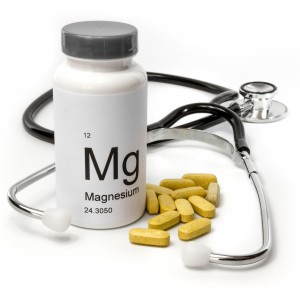
I’ve been banging the table about the healing power of vitamin D3 for years.
This fat-soluble vitamin is one of the core “primal” nutrients that kept our ancestors strong, potent, and disease free.
In previous letters, I’ve shown you dozens of studies that back up this vitamin’s power to fight cancer, heart disease, osteoporosis, diabetes, chronic obstructive pulmonary disease, dementia and Alzheimer’s disease.1,2,3,4,5,6,7,8,9
But vitamin D3 has a mental and emotional impact as well.
It’s an effect I’ve seen in my patients, and it helps me get them off antidepressants like Prozac, Zoloft, etc.
New studies support me on this.
Boost Your “Feel Good” Brain Chemical Up To 30 TIMES Higher
Vitamin D3 can even fight off depression by helping the human brain make serotonin, a neurotransmitter that regulates mood. In fact, vitamin D3 can boost serotonin by anywhere from double to 30 times.10
Doctors in Norway also discovered that taking vitamin D3, especially in large amounts, improved the symptoms of depression.11
That’s good news, because depression can age you faster than normal.

Not many doctors know about the connection between depression and aging. But there’s a direct link. Telomere length was found to be significantly shorter in people with mood disorders, causing a staggering 10 years of accelerated aging.12
Telomeres are the protective end caps of your chromosomes. Shortened telomeres equal premature aging and early death.
While you may already take a vitamin D3 supplement, you may not be getting all of its benefits.
You see, most folks who take a vitamin D3 supplement think they’re getting enough. But many times, the
y’re not. I’ve seen serious deficiencies in the blood tests of patients who’ve been taking 2,000 to 3,000 IUs per day.This isn’t an isolated problem. A National Health and Nutrition Examination Survey found only 10% of the U.S. population had therapeutic levels of vitamin D3 in their systems.
What’s causing this epidemic?
Well, unlike our ancient ancestors, most people now work indoors and avoid the sun entirely. And our processed foods and factory-farmed meats are missing the critical nutrients contained in the food our ancestors ate.
Chances are, you’re not getting enough vitamin D3. And that puts you at serious risk of age-related disease. But it’s never too late to do something about it.
3 Simple Steps for Getting More Vitamin D3
In my patients, what I consider a “therapeutic level” of vitamin D3 in your blood is between 40 and 60 ng/ml. To reach that level, I recommend a daily intake of 8,000 IUs of vitamin D3 per day.
Here are the best ways to do it…

Step 1: Don’t be afraid of the sun. As long as you avoid sunburn, getting some midday sun unprotected for about 10 to 15 minutes a day is good for you. It will give you between 3,000 and 5,000 IUs of vitamin D3.
But here’s what you need to remember. It’s not enough to just take a walk. You need to expose the skin that’s usually covered up. If you always wear a shirt when you’re out in the sun, try taking your shirt off. Even if you just sit in your backyard for a few minutes. Getting sun when you’re all covered up will not have the same effect.
Step 2: Eat foods rich in vitamin D3. Make sure you add food sources of vitamin D3 to your daily diet. A serving of cooked wild salmon and mackerel provide roughly 350 IU vitamin D3 each. Sardines and tuna in oil provide about 225 IUs of vitamin D3 each. And one tablespoon of cod liver oil contains nearly 1,400 IUs of vitamin D3.
Step 3: Take a supplement. Your food probably won’t give you all the vitamin D3 you need. I recommend taking a supplement of vitamin D3 called cholecalciferol. It’s the same vitamin D3 that your body produces. Just be sure to avoid the synthetic form of vitamin D2 in most multivitamins. It’s less potent and less absorbable.
Here are a few more tips I always tell my patients.
Make sure you take a magnesium supplement of between 600 and 1,000 mg of per day with your vitamin D3.

Magnesium levels can drop when boosting your vitamin D3 intake. And magnesium is essential for over 300 different chemical reactions in your body, including those that produce energy and protect your heart and blood vessels.
Also, you want your vitamin D3 supplement to include vitamin K2, which helps activate and improve absorption of vitamin D3.
Plus, vitamin K2 has been shown to help prevent cancer, promote brain health, regulate blood clotting, and prevent plaque buildup in your arteries. By combining both vitamins together you get a powerful, disease-fighting one-two punch.
To Your Good Health,
![]()
Al Sears, MD, CNS
1. Hibler EA1, Molmenti CL, Lance P, Jurutka PW, Jacobs ET. Associations between circulating 1,25(OH)₂D concentration and odds of metachronous colorectal adenoma. Cancer Causes Control. 2014 Jul;25(7):809-17. doi: 10.1007/s10552-014-0382-6. Epub 2014 Apr 16. ncbi.nlm.nih.gov/pubmed/24737199
2. Hibler EA1, Molmenti CL, Lance P, Jurutka PW, Jacobs ET. Associations between circulating 1,25(OH)₂D concentration and odds of metachronous colorectal adenoma. Cancer Causes Control. 2014 Jul;25(7):809-17. doi: 10.1007/s10552-014-0382-6. Epub 2014 Apr 16. ncbi.nlm.nih.gov/pubmed/24737199
3. Bonilla C1, Gilbert R, Kemp JP, Timpson NJ, Evans DM, Donovan JL, Hamdy FC, Neal DE, Fraser WD, Davey SG, Lewis SJ, Lathrop M, Martin RM. Using genetic proxies for lifecourse sun exposure to assess the causal relationship of sun exposure with circulating Vitamin d and prostate cancer risk. Cancer Epidemiol Biomarkers Prev. 2013 Apr;22(4):597-606. doi: 10.1158/1055-9965.EPI-12-1248. Epub 2013 Feb 25. ncbi.nlm.nih.gov/pubmed/23441100
4. Obaidi J, Musallam E, Al-Ghzawi HM1, Azzeghaiby SN, Alzoghaibi IN. Vitamin D and its. relationship with breast cancer: an evidence based practice paper. Glob J Health Sci. 2014 Sep 27;7(1):261-6. doi: 10.5539/gjhs.v7n1p261. ncbi.nlm.nih.gov/pubmed/25560331.
5. Kasiappan R., Sun Y. , Lungchukiet P., Quarni W., Zhang X., Bai W. Vitamin D suppresses leptin stimulation of cancer growth through microRNA. Cancer Res. 2014 Nov 1;74(21):6194- 204. doi: 10.1158/0008-5472.CAN-14-1702. Epub 2014 Sep 24. ncbi.nlm.nih.gov/pubmed/25252917
6. lef.org/Magazine/2013/8/The-Overlooked-Importance-of-Vitamin-D-Receptors/ Page-01
7. Adrian R Martineau, et al, Vitamin D3 supplementation in patients with chronic obstructive pulmonary disease (ViDiCO): a multicentre, double-blind, randomised controlled trial. The Lancet Respiratory Medicine, 2014; DOI: 10.1016/S2213-2600(14)70255-3. www.ncbi.nlm.nih. gov/pubmed/25476069
8. Dickens AP1, Lang IA, Langa KM, Kos K, Llewellyn DJ. Vitamin D, cognitive dysfunction and dementia in older adults. CNS Drugs. 2011 Aug;25(8):629-39. doi: 10.2165/11593080-000000000-00000. ncbi.nlm.nih.gov/pubmed/21790207 13.
9. Annweiler C1, Rolland Y, Schott AM, Blain H, Vellas B, Herrmann FR, Beauchet O. Higher Vitamin D dietary intake is associated with lower risk of Alzheimer’s disease: a 7-year follow-up. J Gerontol A Biol Sci Med Sci. 2012 Nov;67(11):1205-11. doi: 10.1093/gerona/gls107. Epub 2012 Apr 13. ncbi.nlm.nih.gov/pubmed/22503994.
10. P. Patrick, B. N. Ames. Vitamin D hormone regulates serotonin synthesis. Part 1: relevance for autism. The FASEB Journal, 2014; DOI: 10.1096/fj.13-246546.
11. Jorde, M. Sneve, Y. Figenschau, J et al. Effects of vitamin D supplementation on symptoms of depression in overweight and obese subjects: randomized double blind trial. J Intern Med. 2008;264(6):599-609
12. Simon NM1, Smoller JW, McNamara KL, Maser RS, Zalta AK, Pollack MH, Nierenberg AA, Fava M, Wong KK. Telomere shortening and mood disorders: preliminary support for a chronic stress model of accelerated aging. Biol Psychiatry. 2006 Sep 1;60(5):432-5. Epub 2006 Apr 11.

